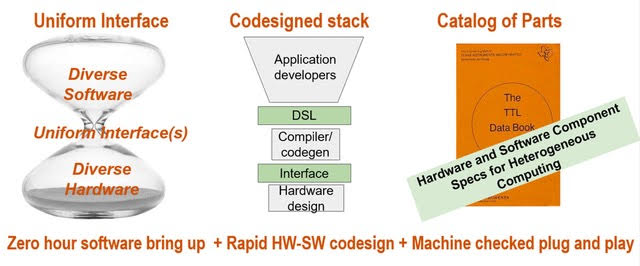
The following is a guest blog from Sarita V. Adve from the University of Illinois at Urbana-Champaign and Ratislav Bodik and Luis Ceze from the University of Washington, co-organizers of the DARPA ISAT I-USHER study.
We are pleased to share the results of a DARPA ISAT study, I-USHER: Interfaces to Unlock the Specialized HardwarE Revolution, arguing for new hardware/software interfaces to enable the revolution promised by hardware specialization.
Advances in hardware specialization are expected to deliver several orders of magnitude improvements in performance, cost, and energy efficiency over the next decade, bringing the promise of revolutionizing applications in datacenters to invisible computing. To harness the power of this new class of computing, it is necessary to develop new abstractions or interfaces to unify the view of this new heterogeneous hardware, making it possible to (1) develop the next-generation of languages and tools needed for both software and hardware development; (2) design yet more radical hardware and systems without having to invest order of $100M in a new software stack; and (3) offer as yet unseen applications a predictable compute layer onto which they can compile.
The I-USHER study identified the opportunities and challenges in developing such interfaces. The outbrief slides present three related views of interfaces for heterogeneous hardware – a uniform interface view, a co-designed stack view, and a catalog of parts view – with promising emergent approaches and open challenges.









